'I Absolutely Love Being Able to Serve Our Community with Books'
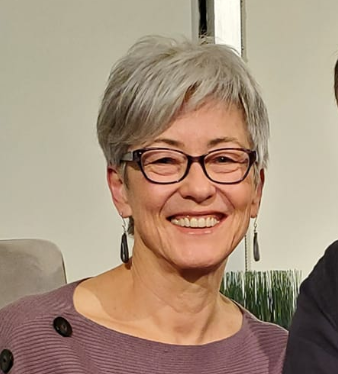

More than 40 independent bookstores in Taiwan closed for the day on Wednesday to protest what they said was the negative impact of Singles' Day online sales on their businesses and chances for survival, CNA reported. On social media pages, the booksellers displayed the same message: "In the book price war, you and I are the ones who will be ultimately affected."
Singles' Day, or Double 11, "is a Chinese shopping holiday started by online retailer Alibaba to celebrate single people, in opposition to Valentine's Day, although the day mostly revolves around the online deals available," Business Insider wrote, adding that sales each year surpass Black Friday and Cyber Monday combined, making it the world's single largest shopping event.
The booksellers' "ire was directed mainly at momo.com and books.com.tw, two massive e-commerce sites in Taiwan that were offering a 34% discount on books on Singles' Day," CNA wrote. Bleu & Book in Taipei, Le Ballon Rouge in Pingtung County, and TaKao Books in Kaohsiung were among the bookstores that closed for the day in protest of the book price war.
Noting on Facebook that there is "nothing more saddening" than seeing cheap book sales become the norm, TaKao Books said that the choices made should be to the benefit of all booksellers in Taiwan and the country's culture.
Chen Jun-hsing, owner of Nanfang Bookstore, told CNA that e-commerce sites engaging in price wars make it harder for physical bookstores to survive, which is why so many indies were cooperating on the protest to raise awareness of the issue.
Asked about the boycott, Culture Minister Lee Yung-te said his ministry has put in place measures that support independent bookstores.
---
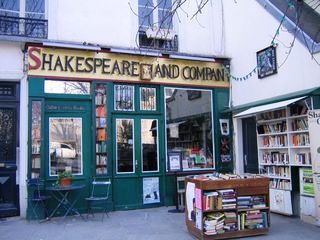 With France now in its second Covid-19 lockdown of the year, Condé Nast Traveler checked in with Shakespeare and Company bookshop in Paris, which "had to shut with sales down 80% as a result of the first lockdown, [and] has since converted its poetry section into a packaging station piled high with books and tote bags. After a social media plea for support, the store is entering this shutdown with hundreds of online orders per day, up from less than 10."
With France now in its second Covid-19 lockdown of the year, Condé Nast Traveler checked in with Shakespeare and Company bookshop in Paris, which "had to shut with sales down 80% as a result of the first lockdown, [and] has since converted its poetry section into a packaging station piled high with books and tote bags. After a social media plea for support, the store is entering this shutdown with hundreds of online orders per day, up from less than 10."
"The first time, we all hit the pause button and waited to see what would happen," said Krista Halverson, publishing director at Shakespeare and Company. "For myself and my friends, we're asking the question, 'How do I keep moving forward?' "
The response to the bookshop's initial appeal for help has been so robust that it had to temporarily close the online bookstore "until we can catch up with orders and correspondence. We anticipate it reopening December 1," Shakespeare and Company noted. "We're truly touched by the outpouring of support, and are now working to fulfill shipping orders as quickly as possible. It may be a few weeks yet as it's proving quite the task for our small team (especially with health and distancing rules)."
This week the bookseller launched Friends of Shakespeare and Company, a one-year membership program created to support the shop, "financially and spiritually," through 2021, with membership starting at €45 (about $53).
"Along with our eternal gratitude, we'll deliver--four times a year, straight to your inbox--a bit of the bookshop, made especially and exclusively for members," the bookseller wrote. "To give you a taste, a quarterly installment might include four or five pieces--a mix of video, audio, and new writing--such as a conversation with a celebrated author, a video tour of the bookshop by proprietor Sylvia Whitman, a new poem from a renowned writer, a slideshow of never-before-seen pieces from our archives, and a short story read by a much-loved actor.... We are truly excited to embark on this new chapter at the bookshop with all of you!"
---

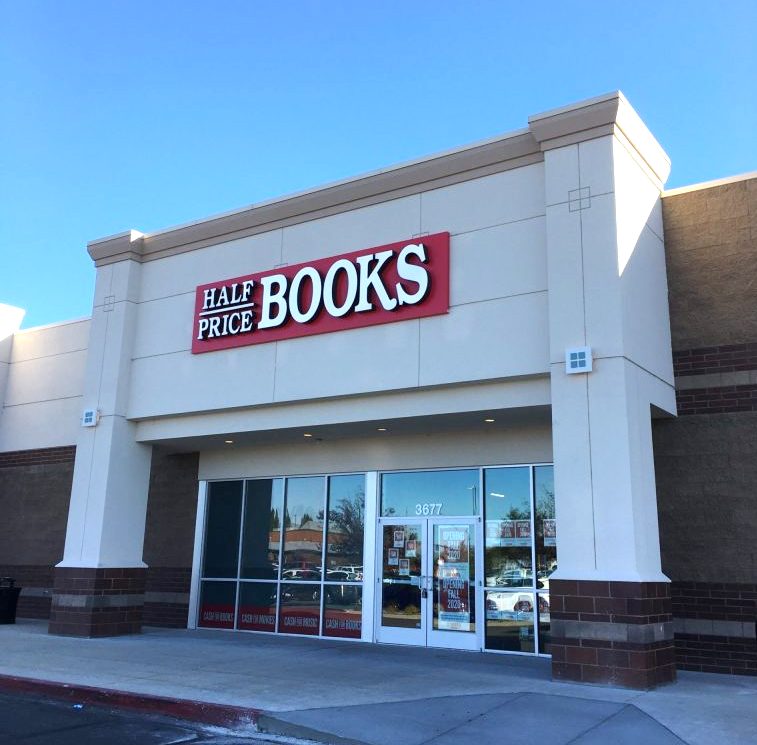 Half Price Books opened a new location in Meridian, Idaho, on Thursday, Boise Dev reported. The 6,800-square-foot store sells new and used books as well as magazines, comics, DVDs and other non-book items. Located in the Meridian Crossroads shopping center, it is the chain's first store in Idaho. HPB has 126 retail locations across 19 states.
Half Price Books opened a new location in Meridian, Idaho, on Thursday, Boise Dev reported. The 6,800-square-foot store sells new and used books as well as magazines, comics, DVDs and other non-book items. Located in the Meridian Crossroads shopping center, it is the chain's first store in Idaho. HPB has 126 retail locations across 19 states.
Chronicle Books has acquired game and toy brands Petit Collage, Ridley's Games and Games Room from Wild + Wolf, a division of DC Thomson, in Bath, England. Petit Collage specializes in eco-friendly toys and gifts for babies and young children; Ridley's Games are games for all ages, including Avocado Smash, Selfish and Drawsome; and Games Room specializes in trivia decks and games. Altogether some 350 products and more than 10,000 existing retail partners in 60 countries are involved.
As result of the purchase, Chronicle is establishing a subsidiary, Chronicle Books Limited, in the U.K. and will hire some Wild + Wolf creative staff to work in Bath and at Chronicle's headquarters in San Francisco, Calif. For the rest of the year, sales and distribution remain unchanged. Beginning in January, all distribution and sales representation will move to Chronicle Books in the U.S. and to its partners Abrams & Chronicle Books in the U.K. and Europe and Raincoast Books in Canada.
The company noted that with consumer demand for games, activities, and all-ages entertainment continuing to increase, "the acquisition is a major step in Chronicle Books’ strategic growth strategy. This move greatly extends Chronicle's already substantial reach in the gift, game, and entertainment categories around the world."
Tyrrell Mahoney, president of Chronicle Books, commented, "The Ridley's, Petit Collage, and Games Room brands align seamlessly with our mission to spark the passions of adults and children worldwide and will complement Chronicle's distinctive publishing program, as well as those of our distribution clients. The integration of these three much-loved and admired brands, and the addition of extremely talented members of their creative teams, supports our strategy to serve even wider consumer interests in all types of retail stores and environments."
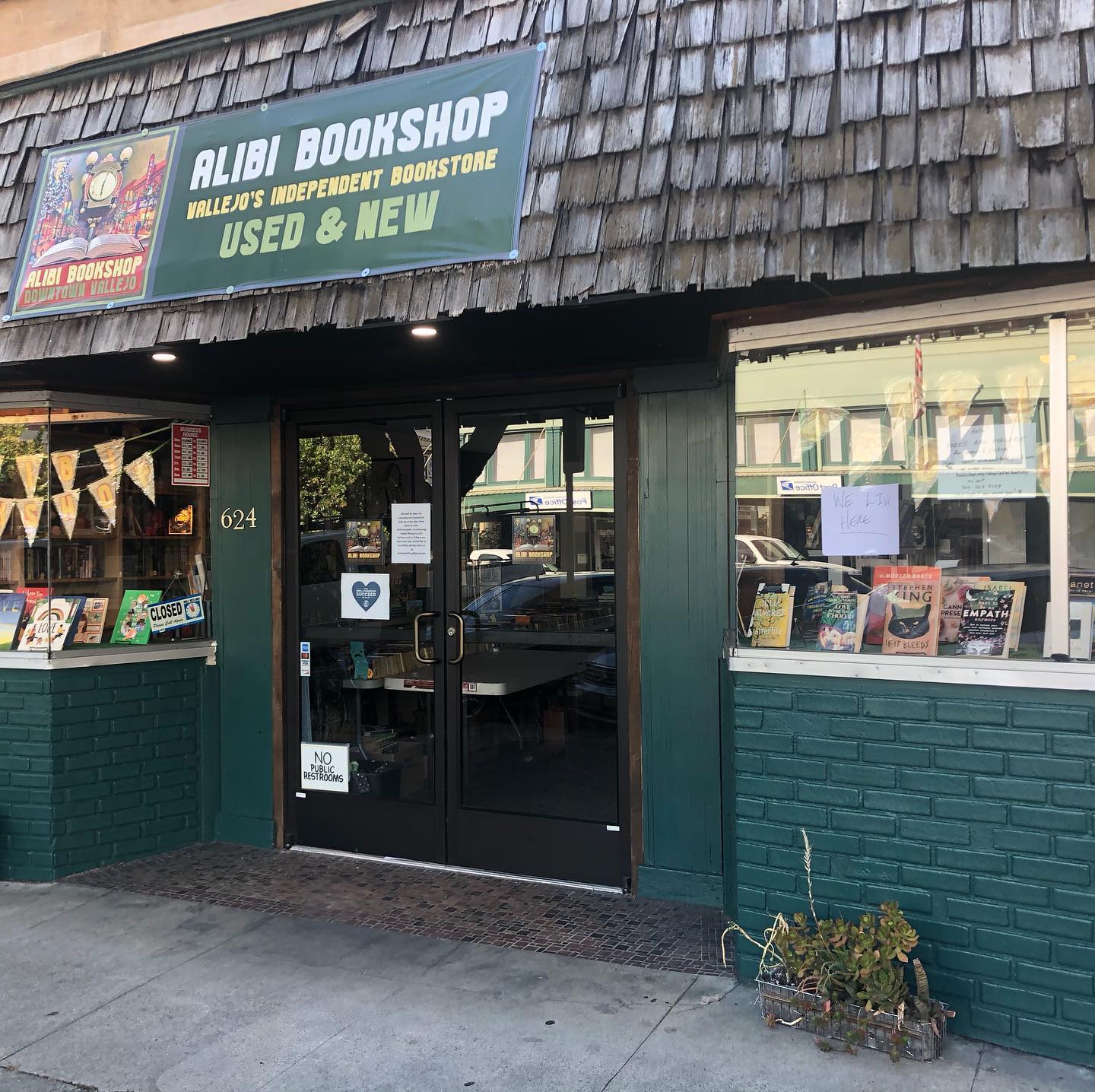 At Alibi Bookshop in Vallejo, Calif., owners Karen Finlay and Jon Burchard reopened for in-store operations in July with limited hours and occupancy. Finlay noted that though the store technically is allowed to have up to eight people in at once, they are allowing no more than five. People have been very patient about waiting outside, she added, and masks and hand sanitizer are required. They've set up a table at the door, so Finlay can control the flow of customers and make sure protocols are being followed.
At Alibi Bookshop in Vallejo, Calif., owners Karen Finlay and Jon Burchard reopened for in-store operations in July with limited hours and occupancy. Finlay noted that though the store technically is allowed to have up to eight people in at once, they are allowing no more than five. People have been very patient about waiting outside, she added, and masks and hand sanitizer are required. They've set up a table at the door, so Finlay can control the flow of customers and make sure protocols are being followed.
Finlay reported that the largest bright spot amid the past several months has been the store's ability to give people "a sense of normalcy." Customers frequently tell Finlay how happy they are to be in a bookstore, and some have even mentioned that Alibi was their first stop when lockdown was lifted. Finlay said it seems like people discovered during lockdown that Amazon is a "bad deal for small businesses and especially for our town," and have recognized that if they want small businesses to stick around, they have to support them. Being here for customers through such difficult times, she continued, has truly emphasized how much a part of the community Alibi really is.
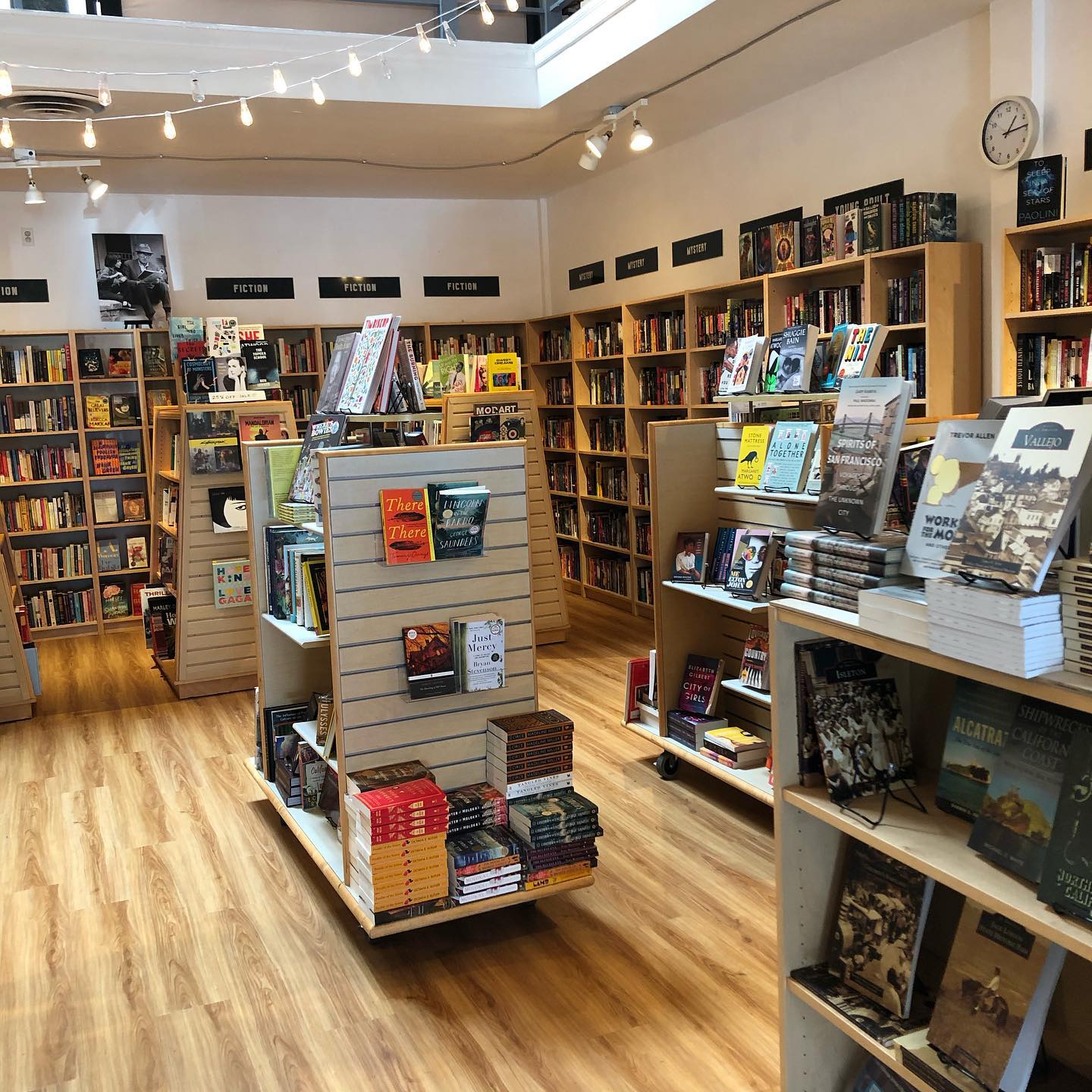 The store was still building its website when the pandemic began, she added, so Bookshop.org has been a major help, and customers who are still concerned about entering stores have been using it. The lockdown also led to Finlay using Facebook and Instagram Live more often as a way to stay connected with customers, which worked very well.
The store was still building its website when the pandemic began, she added, so Bookshop.org has been a major help, and customers who are still concerned about entering stores have been using it. The lockdown also led to Finlay using Facebook and Instagram Live more often as a way to stay connected with customers, which worked very well.
Another bright spot, she added, came the day the lockdown order was issued: two regular customers were planning on getting married in the summer, but because of the lockdown one was about to lose their job. They wanted to get married that day, to make sure they both had health coverage, so Finlay, who is a Universal Life Church minister, closed the store, hurried to their backyard and "married them with minutes to spare before lockdown began."
On the subject of holiday buying, Finlay noted that this is only the store's second holiday season, so she and Burchard are still figuring out what works. They've been very conservative with buying and quantities, but they've been bullish on things they know their customers will like, including Obama's memoir and store-branded sidelines such as coffee mugs.
---
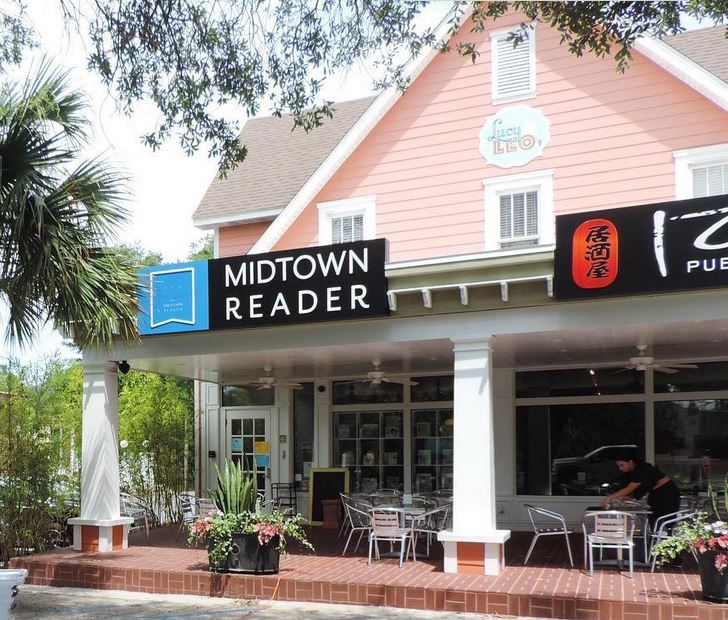
With occupancy being limited, Bradshaw and her staff set up some outdoor browsing to keep customers occupied while they wait. Customers have been "not only respectful but supportive" of all the safety measures the store has put in place. She noted that curbside pick-up and delivery have both been so popular that the store will continue offering those services even after the pandemic. The biggest bright spot by far, she added, is how staunchly the community has supported the bookstore. "Our sales to date are actually significantly up over last year."
Looking ahead to the holidays, Bradshaw said she's "cautiously optimistic." The store is being more careful with volume and leaning deeper into individual titles, as opposed to providing a broader overall selection. The store has also been pushing early holiday shopping and is making use of the ABA's "October/November is the new December" materials.
---
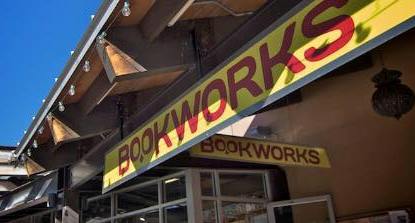 Danielle Foster, co-owner of Bookworks in Albuquerque, N.Mex., reported that the store has been closed to browsing since March 15. She and her team are offering curbside pick-up four days a week and direct-to-home orders through Ingram. They did sign up for Bookshop, but they are still mostly promoting their own website, which is IndieCommerce.
Danielle Foster, co-owner of Bookworks in Albuquerque, N.Mex., reported that the store has been closed to browsing since March 15. She and her team are offering curbside pick-up four days a week and direct-to-home orders through Ingram. They did sign up for Bookshop, but they are still mostly promoting their own website, which is IndieCommerce.
Sales are down approximately 35% since March, Foster continued. Bookworks has been hosting frequent virtual events, some free and some ticketed. The team sends out e-mail blasts three or four times each week and the store is very active on social media. The website is also updated frequently with available titles. Pre-orders, Foster added, are doing very well for the store.
Next week, Bookworks will launch a "shop early, shop local" campaign with its own branding, and in general the store ordered very lightly for the fourth quarter. So far, holiday sales have been slow, but Foster expects things to be busier starting next week.
Looking ahead, Foster said she does not expect to reopen for browsing any time soon. Cases are surging again and there are high-risk individuals in the family. The community has also been very good about supporting the store, and there are usually 200-250 orders ready for pick up on those days. --Alex Mutter
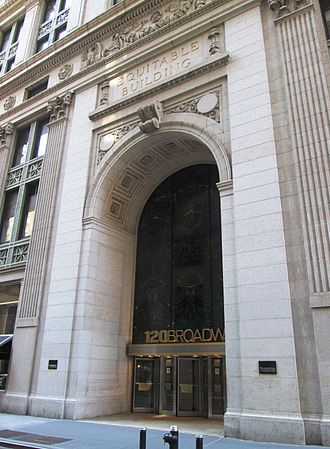 Macmillan's trade publishing offices in New York City will not officially reopen before July 6, 2021. Previously, the anticipated date had been January 11.
Macmillan's trade publishing offices in New York City will not officially reopen before July 6, 2021. Previously, the anticipated date had been January 11.
In the interim, Macmillan has established a voluntary program that allows limited access to the office space for employees to work and/or access their workspace. Initially started as a trial in August based on employee suggestions, the program has evolved to include access to mailing options and other office services for use by staff both onsite and working remotely. The program follows requirements from the CDC and New York City requiring employees to social distance, wear masks and fill out a health screening form before arriving onsite.
"The safety and wellbeing of our employees are a priority for us," said Andrew Weber, Macmillan Global COO. "This is just an example of the many resources that we have created or adapted to better accommodate the various needs of our employees during this difficult time."
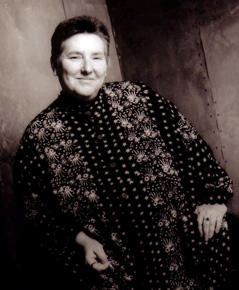 |
|
| Joan Drury | |
Joan Drury, the author, bookstore owner and publisher who supported women writers throughout her career, died Monday at a hospital in Grand Marais, Minn., the Twin Cities Pioneer Press reported. She was 75.
Drury was the owner and publisher of Spinsters Ink, a lesbian feminist press founded in 1978, from 1992 until 2001. During her time as owner, the press published 36 titles. She was also the co-founder of Harmony Women's Fund, which helped fund more than 100 women's nonprofit organizations in Minnesota, and the creator of Norcroft, a writing retreat that supported women writers.
She was instrumental in creating the National Lesbian Writers Awards and was a writer herself. She published a series of mystery novels and one of them, Silent Words, won a Minnesota Book Award in 1997.
In 2002 she opened Drury Lane Books in a house dating back to 1905 that sits on the shores of Lake Superior. Since 2016 the bookstore has been managed by Gwen Danfelt.
"I love working for Joan, especially her focus on great books and understanding of excellence," Danfelt told TCPP. "We chose books we believed in. She always talked about books. The first thing she asked staff and other people was, what are you reading? She was especially happy about the rise of diversity in books we are seeing now."
Danfelt added that it was Drury's wish that the bookstore remain open. "So, we will still be here."
Last night, Watchung Booksellers, Montclair, N.J., hosted a launch party for new children's publisher Levine Querido and its founder, Arthur A. Levine. During the event, Levine spoke with some of Levine Querido's authors, including Kristen Mai Giang, Donna Barba Higuera and Martha Brockenbrough, as well as senior editor Nick Thomas. Watchung owner Margot Sage-EL said that "the joy and pride was intimately apparent in this lively conversation," and more than 100 people tuned in. You can watch it here.
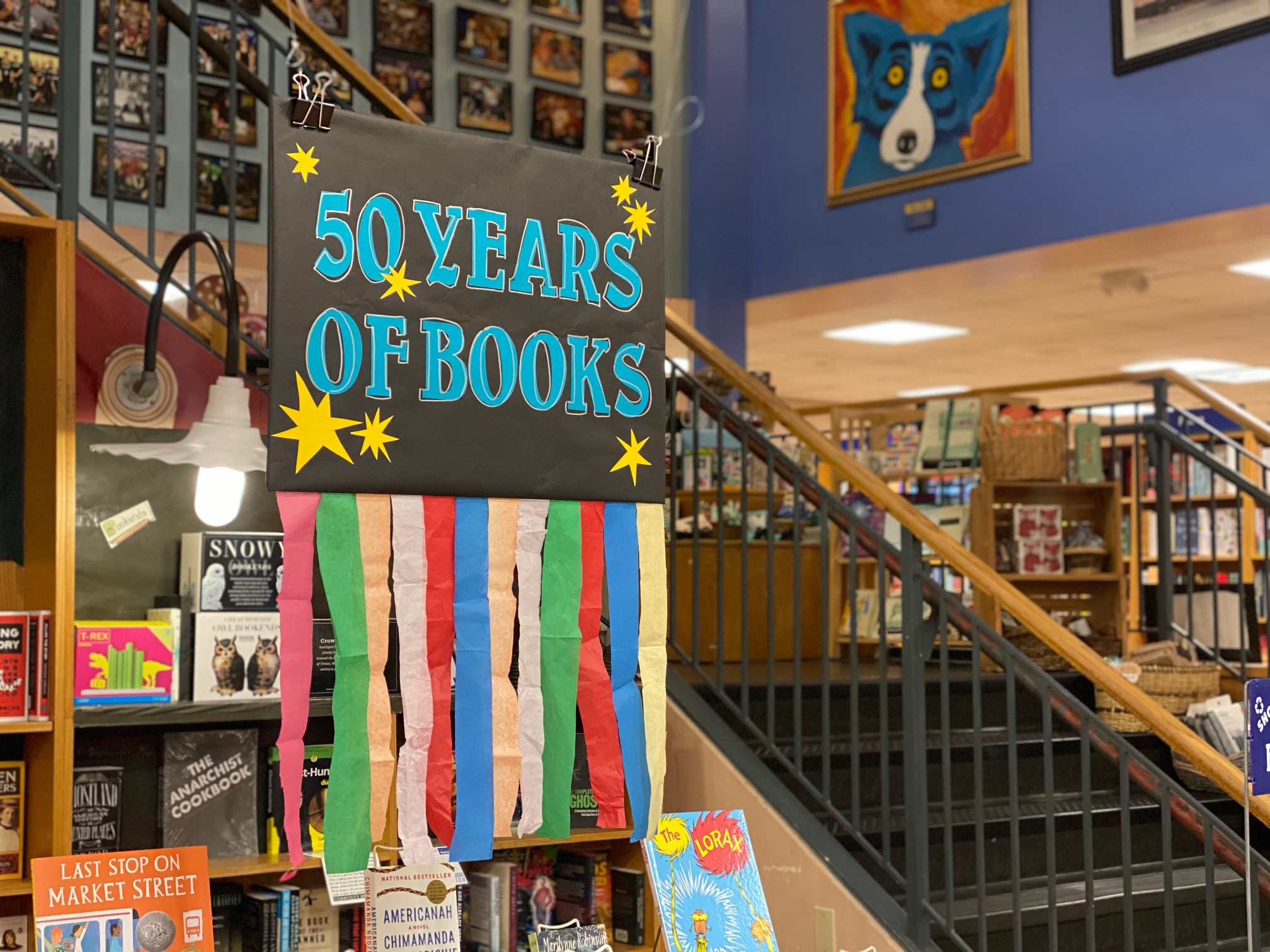 Congratulations to BookPeople, Austin, Tex., which celebrated a half-century in business this week, tweeting on Wednesday: "Well, y'all. Today's the day... it's officially OUR 50TH BIRTHDAY!!!!!!! It's been quite the year. Nothing has gone as planned, but we're still breaking out the bubbly and eating some cookies because damn it, we made it 50 YEARS.
Congratulations to BookPeople, Austin, Tex., which celebrated a half-century in business this week, tweeting on Wednesday: "Well, y'all. Today's the day... it's officially OUR 50TH BIRTHDAY!!!!!!! It's been quite the year. Nothing has gone as planned, but we're still breaking out the bubbly and eating some cookies because damn it, we made it 50 YEARS.
"Your support has meant the world to us, especially these last 9 months as we've faced challenges like never before. Today we're taking a moment and thinking back to all the parking lot midnight release parties and author signings, bookmark contests and petting zoo storytimes....
"Not to mention our amazing booksellers, the heart of BookPeople. Some of us have been here for 25+ years. Some of us grew up here (okay, mainly Thomas)... some of us have made questionable fashion choices.
"Some of us have been here a handful of years, and some A FEW MONTHS! We're working hard, getting creative, bringing and facing changes, and continuing to grow as your local community bookstore....
"So today, on our 50th birthday, we remind you: Support your local bookstores. Be respectful and kind to retail workers. And especially this year, do your holiday shopping early. It's a crucial time for us. If you want us here next year, shop with us this year!"
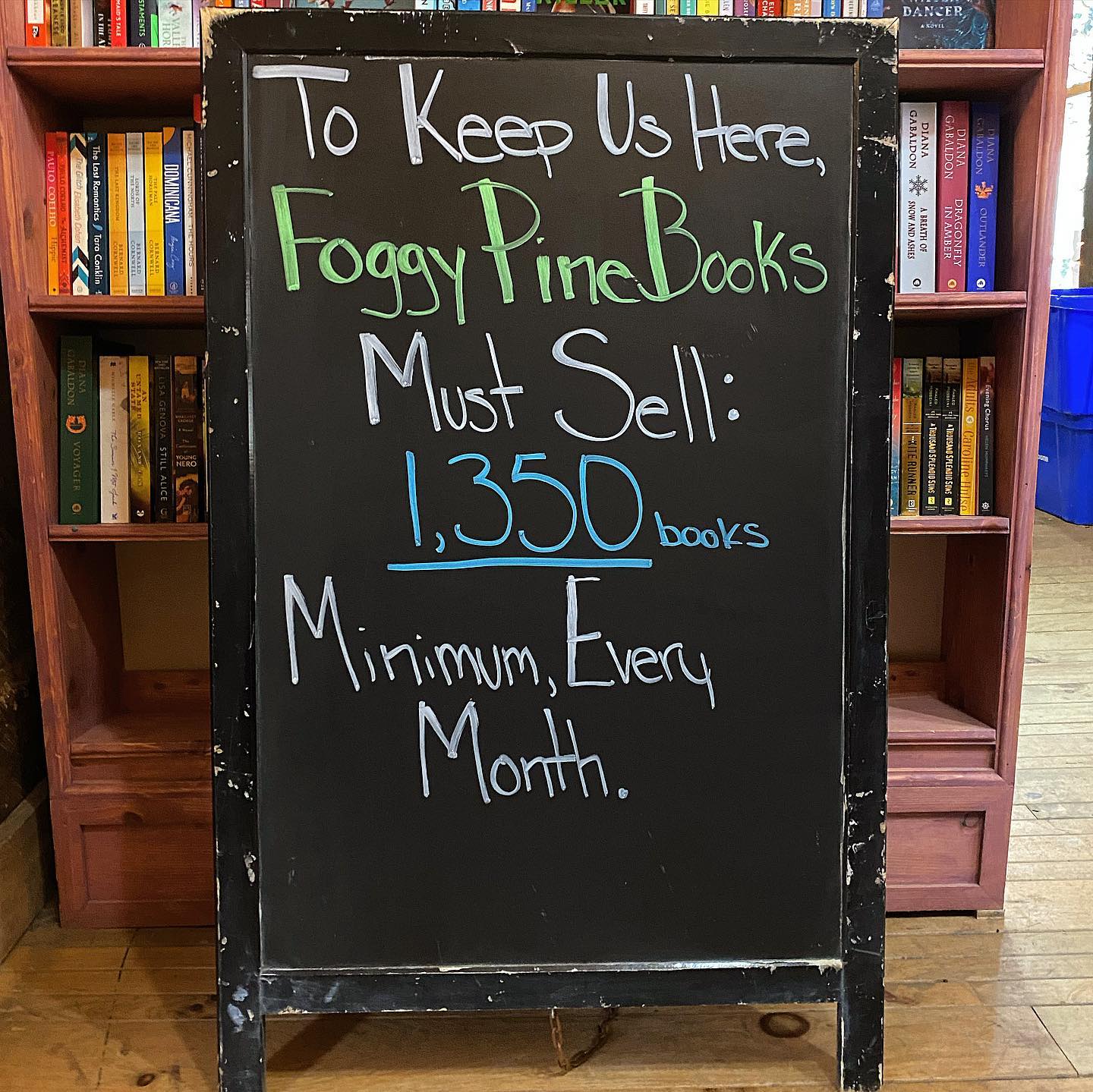 Last month, Foggy Pine Books, Boone, N.C., introduced "a new photo series showcasing the number of books we need to sell every month in order to stay in business. Your response to this was incredibly supportive & encouraging. We are forever grateful for the love y'all send our way!
Last month, Foggy Pine Books, Boone, N.C., introduced "a new photo series showcasing the number of books we need to sell every month in order to stay in business. Your response to this was incredibly supportive & encouraging. We are forever grateful for the love y'all send our way!
"We promised an update though so that's what we're bringing you today. The first photo features the number of books we need to sell each month in order to continue being a part of this community: 1,350. This number covers the bare minimum of our expenses & does not provide room for things like staff raises or unexpected emergencies. If you swipe through the photos, you can see that we came in just under the that number last month at 1,008 books sold. This month so far, we've sold 241 books.
"We've made no secret of the fact that running an indie bookstore is difficult during the best of times & that right now we are struggling deeply. We hope that these posts help put that struggle into context for our supporters & help illustrate the fact that your support is absolutely vital to our survival right now."
Beginning January 1, Southern Territory Associates will represent Baker & Taylor Publisher Services' publisher partners in the Southeastern U.S. as well as select Southern states. BTPS other regional trade sales rep groups include Fujii Associates, Book Travelers West, and Northeast Publishers Reps.
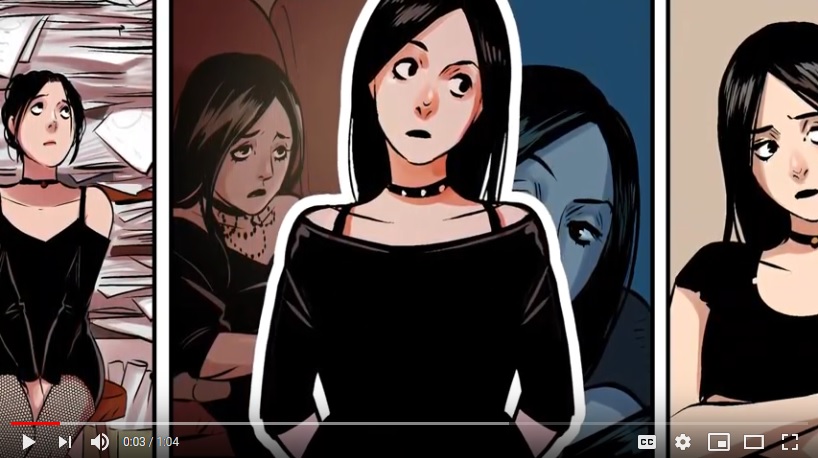 Mary: The Adventures of Mary Shelley's Great-Great-Great-Great-Great-Granddaughter by Brea Grant, illustrated by Yishan Li (Six Foot Press). The trailer is voiced by the author, filmmaker and actress Brea Grant.
Mary: The Adventures of Mary Shelley's Great-Great-Great-Great-Great-Granddaughter by Brea Grant, illustrated by Yishan Li (Six Foot Press). The trailer is voiced by the author, filmmaker and actress Brea Grant.
Dash & Lily, the new Netflix series based on the YA novel Dash & Lily's Book of Dares by Rachel Cohn and David Levithan, "bookends its central love story between festive Lily (Midori Francis) and grinchy Dash (Austin Abrams) at the iconic New York City bookstore the Strand," Deadline reported.

Producer Shawn Levy observed: "I know that not everyone gets excited and enamored of bookstores, but I certainly do. The more unique the bookstore, the better. We know what a chain bookstore looks like. We know how the aisles look, the smell of the place, the feel of the floorboards. It's just different than independent, long-standing, baked-into-the-community bookstores and the Strand is that. You feel it in the bones of the place and in the details of the place. And that's what we tried to capture in the show."
Dante Brown (Boomer) said, "I love how they tied the Strand into the story and they're giving a business like that a chance to get some traction, especially right now."
Troy Iwata (Langston) added: "I've lived in New York for six years and the Strand is definitely a staple of the city. I know a lot of people that just hang out there. It's a place of refuge for a lot of people to go and find a new book."
Levy also noted that the production team has been doing its part to support the Strand's efforts to stay afloat: "It's just so great to have this beloved, iconic, New York establishment as the centerpiece to the series. It's especially poignant now to see the outpouring of love from New Yorkers and people in other states as well. It's really beautiful and I'm thrilled to play a small part in the love letter to the Strand the show provides."
Ta-Nehisi Coates will adapt his 2019 novel The Water Dancer as a film, with Kamilah Forbes, Plan B and Oprah Winfrey's Harpo producing, Deadline reported. Winfrey had previously chosen The Water Dancer to be one of her book club picks.
Forbes developed and directed the theater version of Coates's National Book Award-winner Between the World and Me at the Apollo Theater and Kennedy Center, and also directed an HBO adaptation of the book.
Chimamanda Ngozi Adichie and her novel Half of a Yellow Sun was voted the Women's Prize for Fiction's Winner of Winners, a one-off award marking the culmination of a year-long 25th anniversary celebration, including the #ReadingWomen campaign. Her novel originally won the Women's Prize for Fiction (then the Orange Prize) in 2007.
"I'm especially moved to be voted 'Winner of Winners' because this is the prize that first brought a wide readership to my work--and has also introduced me to the work of many talented writers," Adichie said.
She will be presented with a silver edition of the prize's annual statuette, known as the "Bessie," and an exclusive hardback special edition of Half of a Yellow Sun is also available from Waterstones. A live, online event, hosted by Women's Prize founder director Kate Mosse, will be held December 6, during which Adichie will talk further about her writing and being chosen for the award.
---
Fifteen titles are on the longlist for the $35,000 2021 Aspen Words Literary Prize, a program of the Aspen Institute that recognizes "fiction that addresses vital contemporary issues." Finalists will be announced February 17, and the winner will be revealed at a virtual awards celebration the week of April 19. View the longlist here.
Everybody (Else) Is Perfect: How I Survived Hypocrisy, Beauty, Clicks, and Likes by Gabrielle Korn (Atria, $17 paperback, 272p., 9781982127763, January 26, 2021)
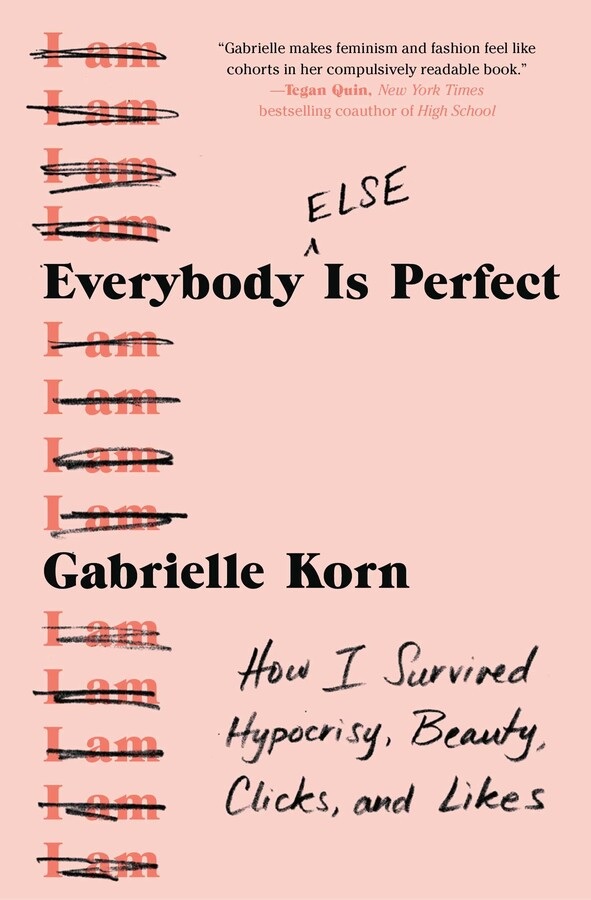 In 2017, when there were "no other lesbians at the tippy top of major fashion mastheads," Nylon magazine switched to an all-digital format and Gabrielle Korn became editor-in-chief at age 28. The death of Nylon in print and the concurrent promotion of Korn from the company's digital director to its top dog caused some friction, moving one of Korn's colleagues to tell her, "You know, in the made-for-TV movie about Nylon, you're not the good guy." In Everybody (Else) Is Perfect: How I Survived Hypocrisy, Beauty, Clicks, and Likes, Korn comes across as more than just a good guy: she's a hero.
In 2017, when there were "no other lesbians at the tippy top of major fashion mastheads," Nylon magazine switched to an all-digital format and Gabrielle Korn became editor-in-chief at age 28. The death of Nylon in print and the concurrent promotion of Korn from the company's digital director to its top dog caused some friction, moving one of Korn's colleagues to tell her, "You know, in the made-for-TV movie about Nylon, you're not the good guy." In Everybody (Else) Is Perfect: How I Survived Hypocrisy, Beauty, Clicks, and Likes, Korn comes across as more than just a good guy: she's a hero.
In Everybody (Else) Is Perfect, Korn writes about her life, both in and out of the office, in a series of smart, nervy essays. Armed with her women's studies major and her love for clothes, Korn started writing about style before "beauty as self-care" was "something you did for yourself and not for a man." By the time Korn was helming Nylon, she was wholly committed to transforming the brand through her feminism and through "an editorial strategy that prioritized racial diversity, that welcomed all bodies to the table, and that didn't limit the idea of coolness to a certain economic class." Readers showed their love with clicks.
Korn's professional success corresponded with some rocky personal trials, including navigating an eating disorder and shaking a weakness for insufficiently supportive romantic partners--the very sorts of self-defeating traps that Korn and her Nylon compatriots were hoping their readers, bolstered by stories from the magazine, would avoid. And yet Korn is well aware that there's an underlying conflict when fashion magazines employ the language of feminism--after all, they're serving an industry dependent on women's insecurity about their appearance. Korn devotes a barbed essay to the wellness industry's co-opting of feminism ("The Cult of Empowerment"), and she's equally eviscerating on subjects like healthy-food fanaticism ("Bone Broth") and--surely a bubble burster for style-maven readers--New York Fashion Week ("Fashion Weak").
When Nylon was sold in 2019, Korn decided to leave, after five years with the company, by which point she was burned out and underslept to the point of illness. Of course she was spent: it's hard to read Everybody (Else) Is Perfect without seeing Korn as a soldier fighting in the culture war on the side of women's empowerment. The nation is better off for her service. --Nell Beram, author and freelance writer
Shelf Talker: In a collection of essays, Nylon magazine's wise-beyond-her-years former editor-in-chief writes about her efforts to improve the brand and herself.
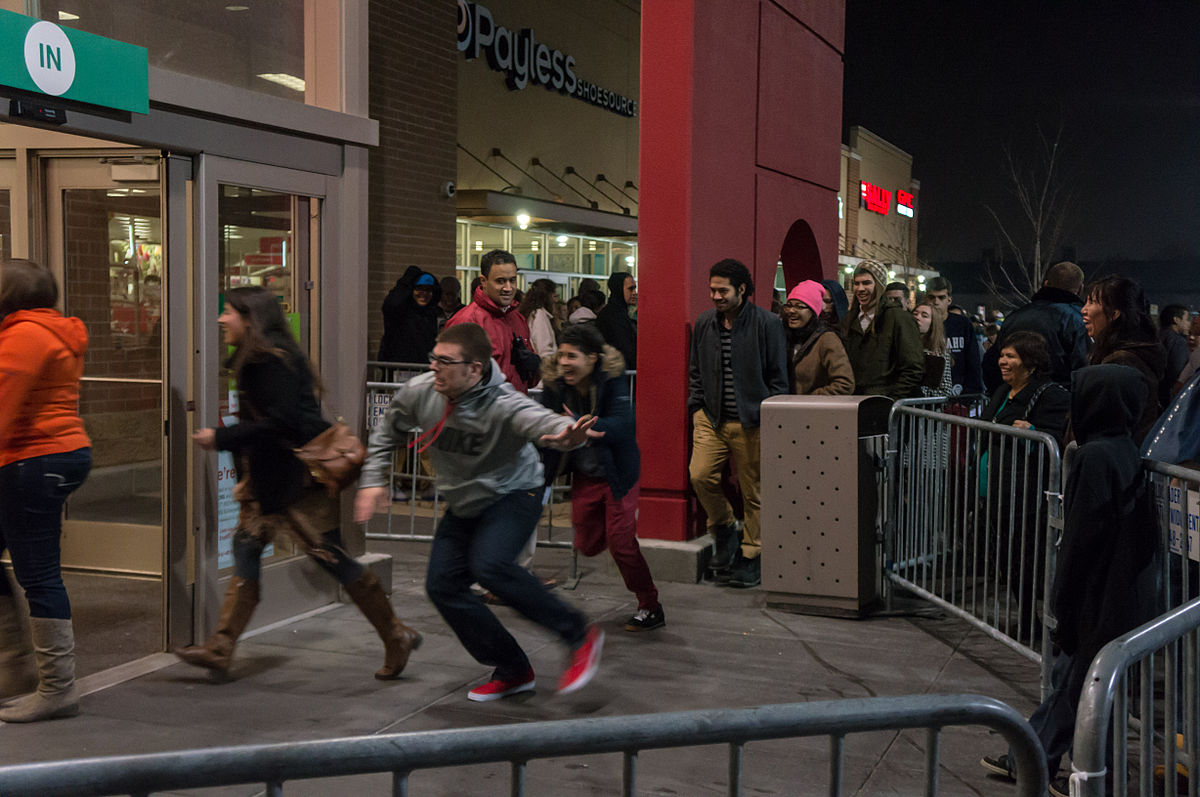 Remember Black Friday? Just last year, the National Retail Federation reported that Black Friday had been the busiest day for in-store activity, with 84.2 million shoppers, followed by Small Business Saturday (59.9 million), Thanksgiving Day (37.8 million), Sunday (29.2 million) and Cyber Monday (21.8 million).
Remember Black Friday? Just last year, the National Retail Federation reported that Black Friday had been the busiest day for in-store activity, with 84.2 million shoppers, followed by Small Business Saturday (59.9 million), Thanksgiving Day (37.8 million), Sunday (29.2 million) and Cyber Monday (21.8 million).
I've been feeling a little Black Friday nostalgia. This was heightened yesterday by a Seattle Times article in which Tom Nissley, owner of Phinney Books and Madison Books, spoke of the myriad challenges indie booksellers are currently facing. He also reminisced about the fun of shopping for the holidays in a bookshop before he was in the business, "spending half the day at Elliott Bay and choosing all my books for people."
But now there's #PandemicBlackFriday2020. Who's gearing up for that? People won't even be able to sneak away from family gatherings for a good old-fashioned bricks-and-mortar shopping frenzy. Instead, they'll have to turn off the video on their family's Zoom Thanksgiving and do some secret online buying. The only large, angry crowds gathering outside stores will be there to protest mask requirements.
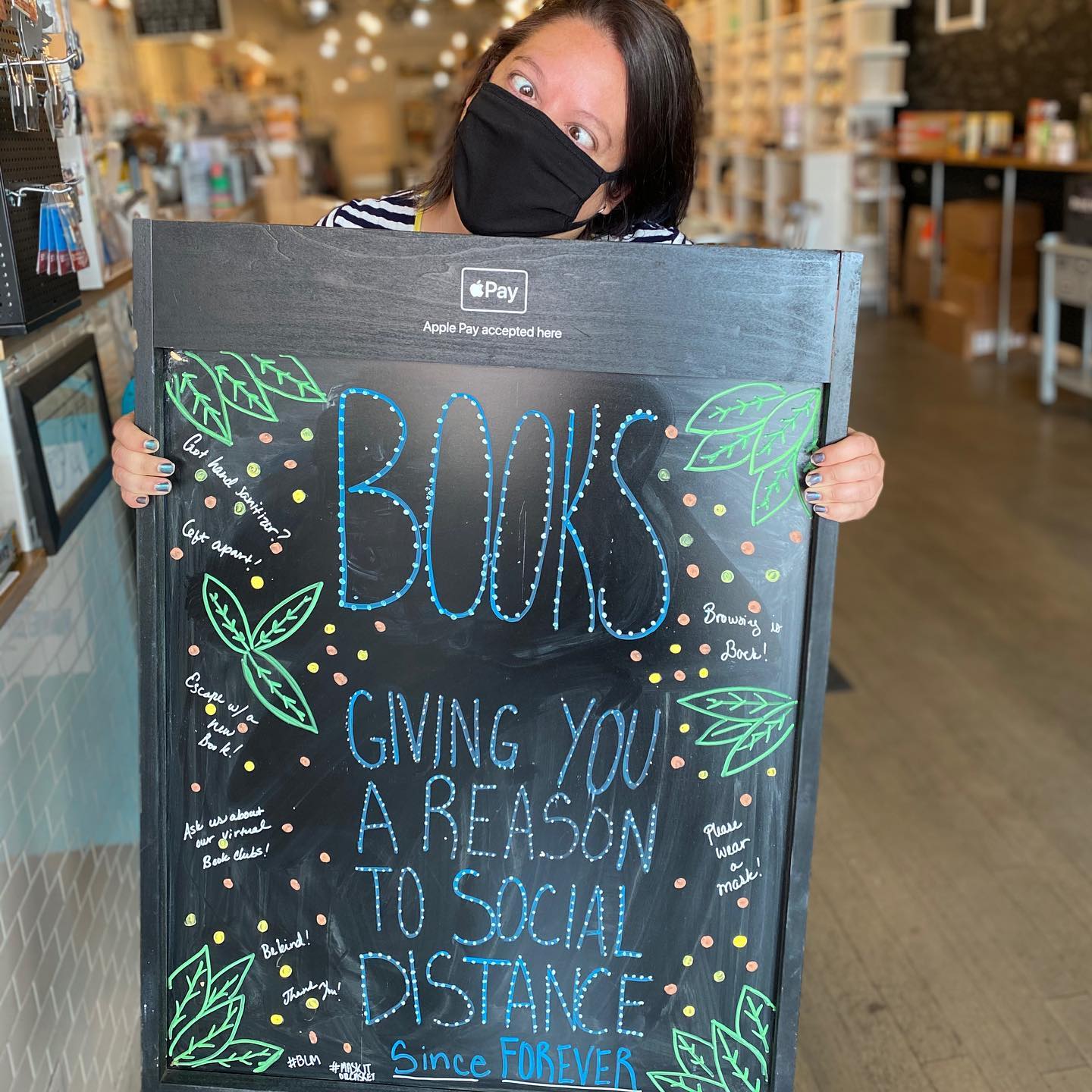 |
|
| At Chicago's Volumes Bookcafe | |
"Gatherings during the upcoming holidays can be an opportunity to reconnect with family and friends," the CDC just said in its latest cautionary tale. "This holiday season, consider how your holiday plans can be modified to reduce the spread of Covid-19 to keep your friends, families, and communities healthy and safe."
Happy... never mind.
WalMart is offering a "reinvented" Black Friday in-store experience, which actually means shoppers will be required to form a single-file line before the 5 a.m. opening "and follow directional signs to avoid others while shopping." Sounds festive.
Target CEO Brian Cornell got into the 2020 holiday spirit early by noting that "the investments we've made in our business and our incredible team have enabled us to move with flexibility and speed to meet guests' changing needs during this global pandemic. This year more than ever, a joyful holiday will be inseparable from a safe one, and we're continuing to adjust our plans to deliver ease, value and the joy of the season."
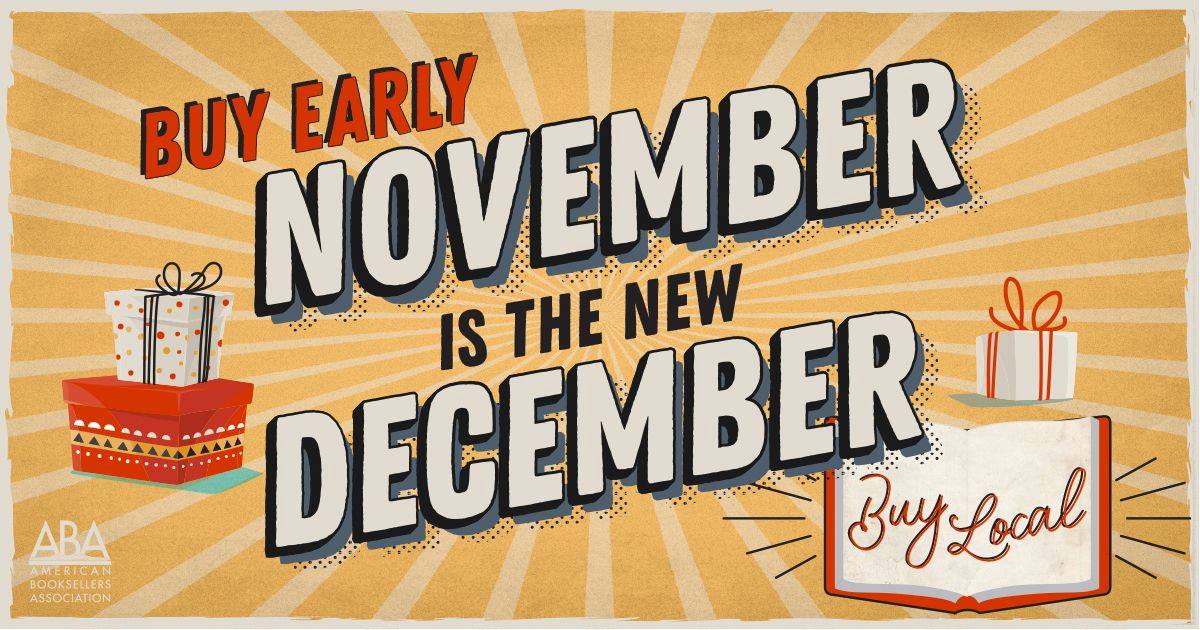 For indie booksellers this year, the holiday refrains of "Buy Early, Buy Local" and "November Is the New December" ring out through the land. A recent Facebook message to customers from Word Up Community Bookshop/Librería Comunitaria in New York City sums up the mission well: "Hi all, please consider shopping early! While you'll be able to shop online all season, shipping in time for the holidays is not guaranteed. And if you have special books you're looking for, it may take longer to get them in. We recommend placing orders before December. The last quarter is always the most important one for booksellers and will help determine how we do next year. Buy local and buy early to help your community bookshops!"
For indie booksellers this year, the holiday refrains of "Buy Early, Buy Local" and "November Is the New December" ring out through the land. A recent Facebook message to customers from Word Up Community Bookshop/Librería Comunitaria in New York City sums up the mission well: "Hi all, please consider shopping early! While you'll be able to shop online all season, shipping in time for the holidays is not guaranteed. And if you have special books you're looking for, it may take longer to get them in. We recommend placing orders before December. The last quarter is always the most important one for booksellers and will help determine how we do next year. Buy local and buy early to help your community bookshops!"
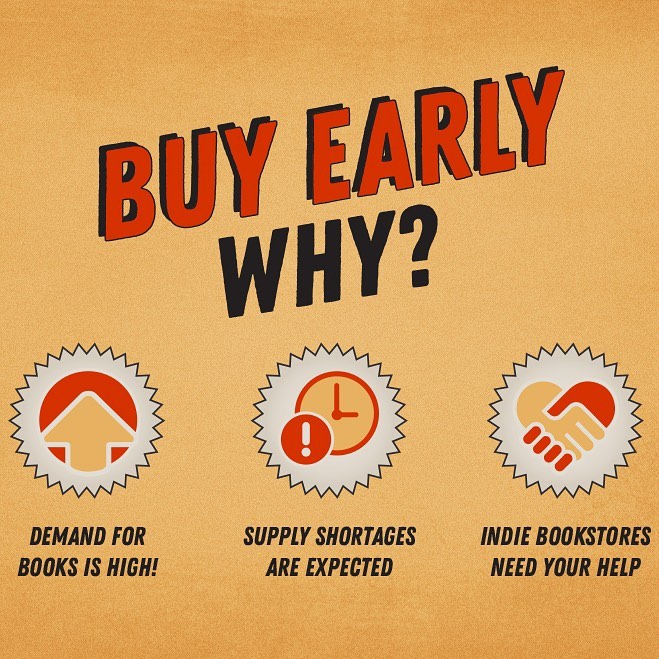 Remember when Black Friday mattered to bookstores? My first as a bookseller scared the hell out of me for a month before it arrived. In 1992, I was just a 42-year-old kid with a crazy dream. I'd been a bookseller for six months and believed nirvana had been attained. Like most rookies, I wanted nothing more from life at that point than to be in the stacks all day, talking with other book lovers about our mutual addiction. Who knew there was a catch?
Remember when Black Friday mattered to bookstores? My first as a bookseller scared the hell out of me for a month before it arrived. In 1992, I was just a 42-year-old kid with a crazy dream. I'd been a bookseller for six months and believed nirvana had been attained. Like most rookies, I wanted nothing more from life at that point than to be in the stacks all day, talking with other book lovers about our mutual addiction. Who knew there was a catch?
Shortly after Halloween, my colleagues began spinning cautionary tales about the post-Thanksgiving blitz--crowds, noise, complaints, screaming kids (and, sometimes, adults), the crush of bodies, the scattered heaps of browsed and discarded books. Zombies were still a couple of decades away from becoming fashionable, so I imagined an episode of The Twilight Zone as conceived by Stephen King.
"It's bad?" I asked.
"You don't want to know," they replied.
That first Black Friday, I arrived at the store early and we went through last-minute battle plans: register and lunch schedules, sales floor assignments, pep talks. Then it was time to open the doors. Overwhelming is a fair description of what happened next, but panic somehow blended nicely with adrenaline-laced professionalism to turn the day into an efficient, exhausting and profitable blur. Not scary, as it turned out, but not quite un-scary either.
By the end of the '90s and into the early 21st century, Amazon began to take some of the thrill out of Black Friday. Then indies gradually found their footing and struck back against the evil empire through initiatives like Plaid Friday, Small Business Saturday and Cider Monday to regain book buyer's attention.
At the same time, Black Friday was efficiently devouring itself, with earlier store openings and a hyperextended sales season. "Long gone are the days of 'Black Friday' for in-store shopping and solely 'Cyber Monday' for online shopping," Fast Company reported, adding: "In a reimagined pandemic landscape, we're moving into an era of 'online first' where consumers can shop throughout the season for deals versus waiting for a one-day event."
So, what will Pandemic Holiday Season 2020 bring out in indie booksellers? Their best, I expect.
As Annie Carl, owner of the Neverending Bookshop in Edmonds, Wash., told the Seattle Times: "That's the really great thing about the book industry, especially the indie book industry--we're all in this together.... We're all really tired. We've hit this point in the year and we're exhausted and we don't know what to expect, we don't know how long we've got to hang in there for, hopefully not a long while. But the big key thing is kindness and patience."
And Black Friday is in quarantine.